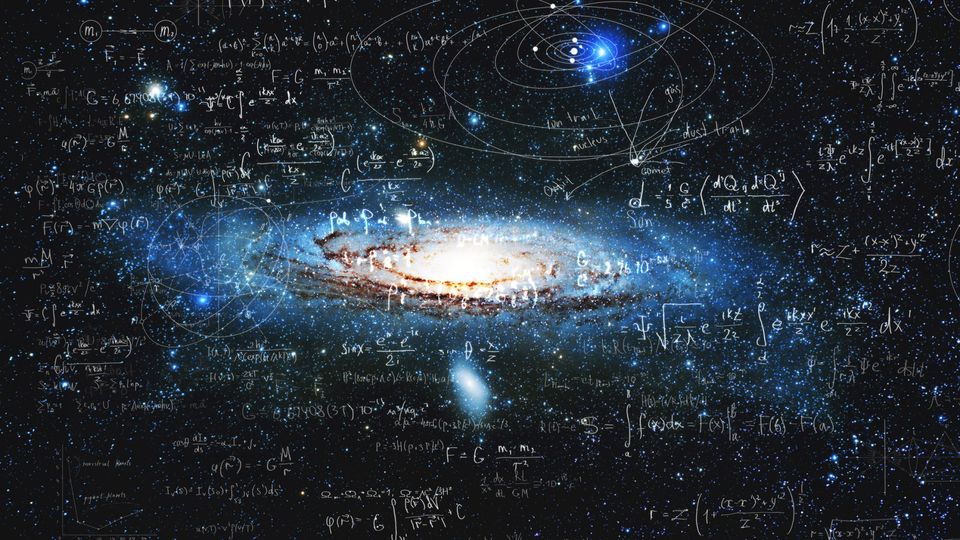I've had a lifelong fascination with space and once I started my engineering degree I discovered I had a passion for Physics. Since my engineering degree was focused on Computer Engineering I didn't get a chance to apply what I was learning in Physics classes to space...so I'm playing catch up and doing it for fun now.
Of course, doing this myself means I have the chance to hack together any type of educational resources I want to. So I've been having a little fun with it and thought I'd share how I'm currently hacking my way into learning Astrophysics at Caltech, along with how I picked Caltech as the curriculum to follow.
So why Caltech? Easy answer. I went to US News and World Reports and looked at their rankings for top Universities for Space Science and here's what I found:

This year, Caltech is the #1 University for Space Science so I decided to focus on their Astrophysics program. To do that I found a list of their Astrophysics courses here. Honestly, every class on this list looks amazingly interesting, but I decided to go in order and start with Ay 1. The Evolving Universe, here's a summary of what is covered in this class ⬇️
Ay 1.The Evolving Universe.9 units (3-3-3):third term.Introduction to modern astronomy that will illustrate the accomplishments, techniques, and scientific methodology of contemporary astronomy. The course will be organized around a set of basic questions, showing how our answers have changed in response to fresh observational discoveries. Topics to be discussed will include telescopes, stars, planets, the search for life elsewhere in the universe, supernovae, pulsars, black holes, galaxies and their active nuclei, and Big Bang cosmology. A field trip to Palomar Observatory will be organized. Not offered on a pass/fail basis.Instructor: Hallinan.
From here I found the main page for the course (albeit from 2016 but I'll take what I can get) and was pretty jazzed to find that while there is no textbook, all of the lectures are on You Tube, and while they're unlisted - a link to them is right there on the course page.

I also found the course page has a super handy section called "Some useful links" that is a treasure trove of Astrophysics resources online. I'm pasting them below because I'm guessing it's more than just me that would dig these.
On-line education/outreach resources:
- JPL (many popular astronomy links)
- The Library of Congress Astronomy Resources on the Internet
- Sky & Telescope Astronomy Links
- AstronomyOnline
- Stanford Libraries, Astronomy and Physics Resources on the Internet
- Imagine the Universe from the NASA GSFC
- CDS AstroWeb
- Griffith Observatory
- ispySpace.com
- StarDate
- PBS Astronomy Programs
Pretty pictures:
- Astronomy Picture of the Day
- Hubble Space Telescope Gallery
- ESO Gallery
- CFHT Image Gallery
- NOAO Image Gallery
- NRAO Image Gallery
- AstroPix at IPAC
- G. Paglioli's astronomy pictures
Observatories and space missions:
- NASA public website
- European Southern Observatory
- Hubble Space Telescope
- National Optical Astronomical Observatory
- National Radio Astronomy Observatory
- Palomar
- Keck
- Spitzer Space Telescope
- Chandra X-ray Observatory
- Fermi Gamma-ray Space Telescope
- GAIA mission
- Planck mission
Astronomy and space news:
On-line classes and free textbooks:
- Khan Academy Cosmology and Astronomy
- Minute Physics
- Teach Astronomy, Prof. C. Impey, U. Arizona
- Introductory Astronomy, Prof. R. Nemiroff, Michigan Tech
- Stars and Galaxies, Prof. R. McCray, U. Colorado
- Astronomy Notes, Prof. N. Strobel, Bakersfield College
- "Astrophysics of Planet Formation", Prof. R. Alexander, Leicester U.
- Mike Brown's "Science of the Solar System" on Coursera
- Benjamin Crowell's "Light and Matter" series
- Motion Mountain physics textbooks
One interesting thing about going through the Caltech Astrophysics curriculum is that I am able to benefit from what I imagine is a lot of serious thought when it comes to the order in which to learn topics and how to learn them. Caltech has been around for some time and as the #1 Astrophysics program in the country they probably have gone through quite a few iterations in the best order to learn things.
That being said, I couldn't help myself and had to compare to Harvard's Astrophysics program which sits in the #2 spot. I'll save what I learned here for another post but I think there's something to be gained by looking at how the #1 and #2 Universities teach Astrophysics and heck, if I'm going to hack an education here, might as well see how I can benefit from two institutions that clearly know what they're doing here.
Stay-tuned, more to come, now time to watch some of Caltech's awesome lectures from Ay 1 🕺
